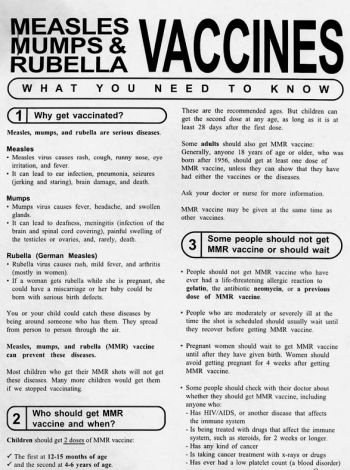Vaccines the tip of the compliance spear in 2009


It may be the fact they don't make you better. If you don't get sick it's hard to see the benefits.
But vaccines have put many, many dreadful diseases into the history of American families. I got mumps as a kid, and "German" measles. My kids didn't thanks to vaccines. My parents grew up in deadly fear of polio. I didn't, thanks to vaccines.
Yet whenever I mentioned the topic of vaccines, especially relating to the H1N1 "swine" flu, we could be assured of an almost immediate talkback from someone saying "I won't take it," followed by an "attaboy."
Sometimes this discussion grew quite heated:
JAMA studies push the need for H1N1 flu shot --This October story was the 20th most-popular post of the year, and drew some of the most heated responses.
A story in the Journal of the American Medical Association was complaining about the lack of compliance with warnings to get the shot. It was part of a package of stories on the flu, leading the first comment to be headlined, "still fighting that war, eh Dana?"
Well, yes, I am. Preventing disease costs less than curing it. Vaccines aren't absolute protection, but the numbers say that if you get one you're less likely to get sick and die from whatever-it-is. But vaccine Denialism is rampant.
Was the vaccine-autism link a fraud? --We're talking about a different vaccine here, the standard MMR (Mumps, Measles, Rubella) jab little kids get. But the pushback was just as intense.
This post in February concerned a Sunday Times feature in which Brian Deer claimed a 1998 study claiming a link between autism and the mercury-related compound used to stabilize the vaccine was manipulated.
After Andrew Wakefield published his study, millions of American and British parents began refusing the vaccine. The rate of infection for these diseases is now rising as a result.
Yet I still saw talkbacks claiming "vaccine hypothesis unsound," headlines that startled me. The statistics regarding the efficacy of vaccine science are as obvious as gravity. But gravity is always making itself felt. Vaccines don't work that way.